The answer is 96%! But, are you curious who all these GHG accounting and mitigation experts are?
The Greenhouse Gas Management Institute (GHGMI) conducts an annual Alumni Survey for GHGMI alum to provide feedback as well as make nominations for the Annual Distinguished Alumni Award.
Now, you might be asking, what does a diverse climate profession look like?
In 2020, GHGMI trained an estimated 1,273 individuals, 70% of whom were new to GHGMI. Of those, 595 were awarded Certificates of Proficiency, Diploma Certificates, and/or Certificates of Training[1]. In 2020, GHGMI issued more certificates than in any previous year. More broadly, the Institute’s membership has grown exponentially each year (see Figure 1).
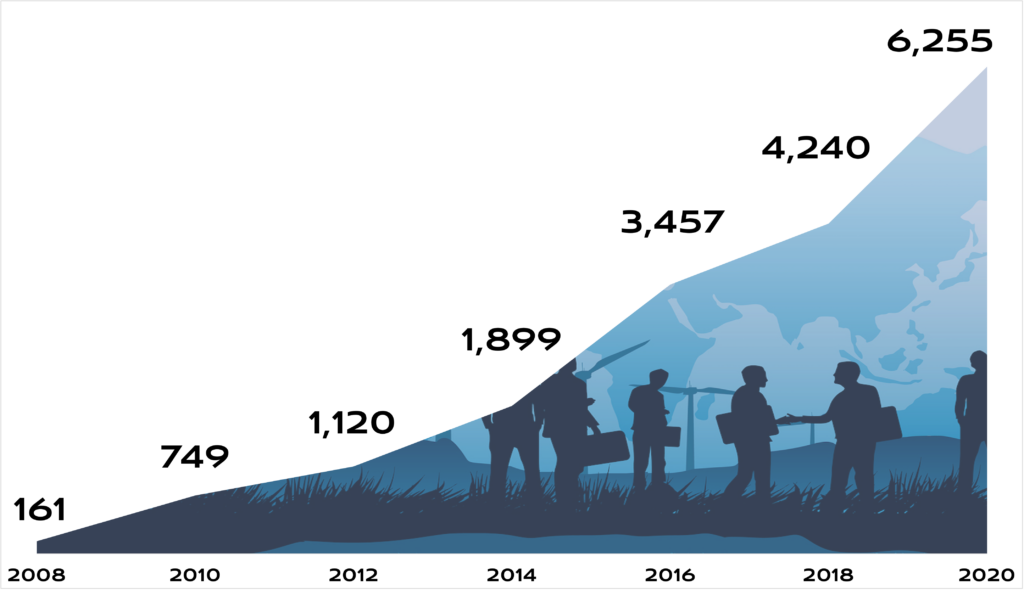 Figure 1: Growth per year in GHGMI membership.
Figure 1: Growth per year in GHGMI membership.
Who are our 2020 Alumni?
The Institute strives to support GHG management professionals of all experiences, backgrounds, and environments, and is pleased to welcome the 2020 alumni to our diverse member pool. As part of our efforts to gather demographic information, we asked alumni to indicate their age, gender identity, racial identity, level of education, employment status, and industry of expertise.
Our 2020 alumni are demographically varied, represented by figures 2, 3, and 4 below.
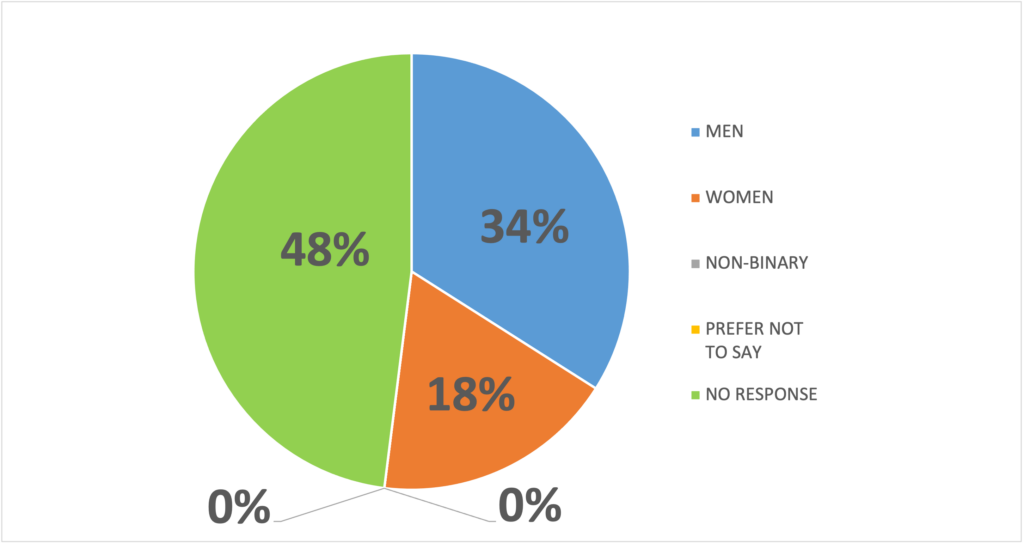 Figure 2: Gender identification of 2020 survey respondents.
Figure 2: Gender identification of 2020 survey respondents.
Gender identification of 2020 alumni is similar to the 2019 Alumni Survey results, where 31% identified as men and 16% as women. The age range of our 2020 alumni also didn’t vary from 2019, with the majority of alumni being between the ages of 36 and 45 (see Figure 3).
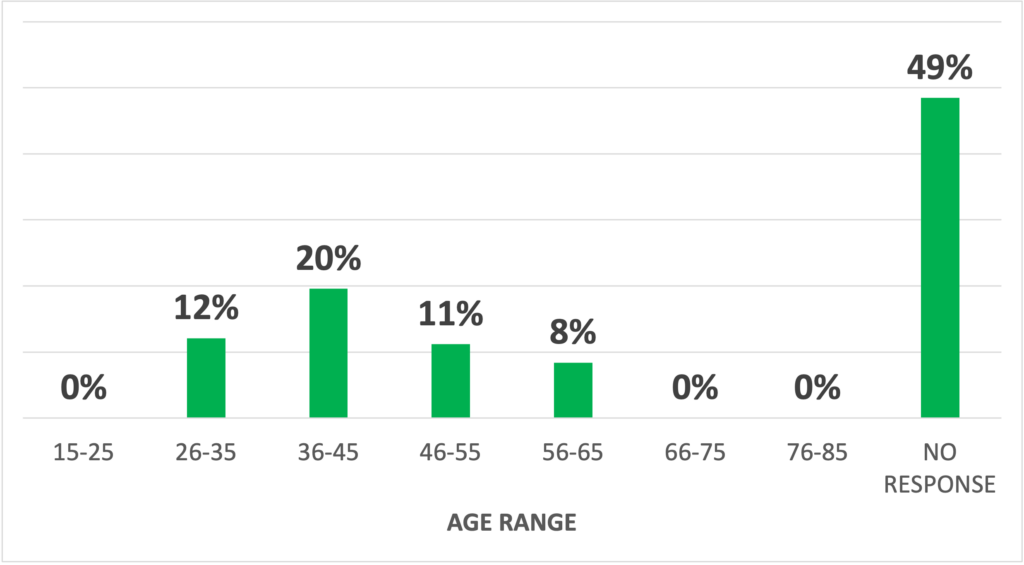 Figure 3: Age range of 2020 survey respondents.
Figure 3: Age range of 2020 survey respondents.
This year we also used the survey to ask alumni about their racial identity. The decision to include racial identity was included in the survey with the goal of reaching meaningful representation of marginalized communities in climate work, and it supports our organizational objective of anti-racism and anti-colonialism[2]. Figure 4 represents survey responses to this question.
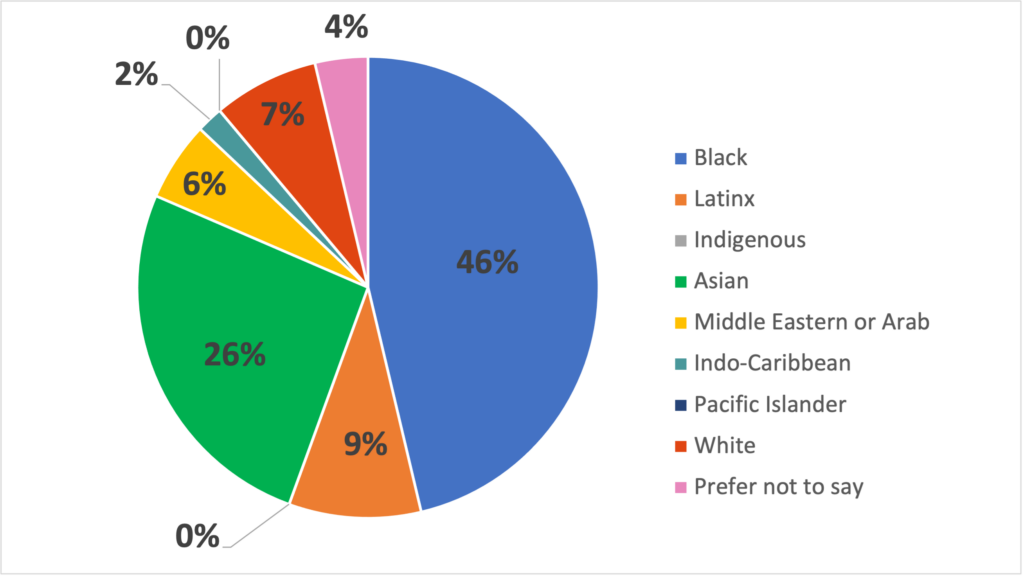 Figure 4: Racial identity of 2020 survey respondents.
Figure 4: Racial identity of 2020 survey respondents.
Industries represented by our 2020 alumni are varied but comparable to previous years’ results, comprising public policy, environment and natural resources, agriculture and forestry, sustainable development, higher education, meteorology, and energy: including oil and gas and biofuels. Furthermore, GHGMI has now trained individuals from 187 countries, representing (96%) in the world. The map below highlights the countries that are represented by our 2020 alumni (in green):
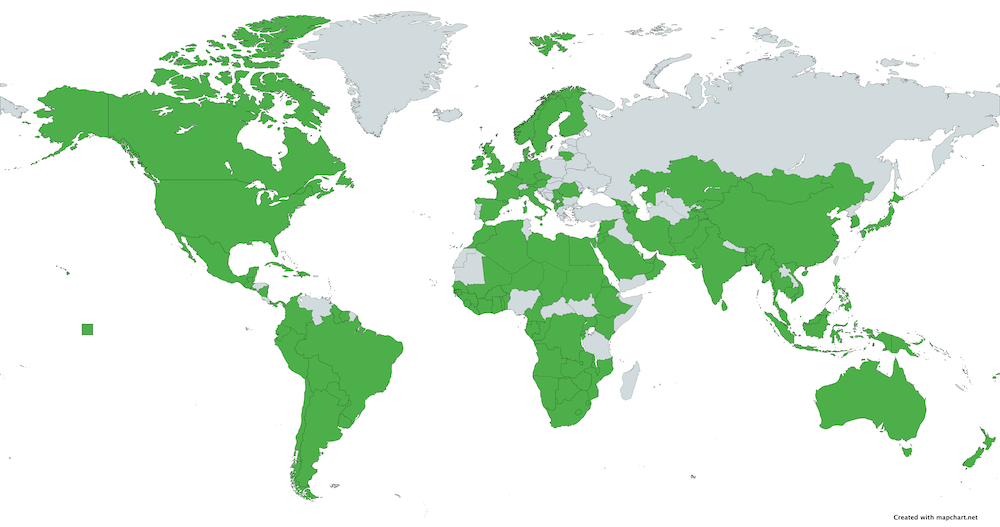
Alumni Impact and Achievement
Our core mission is upheld by our members and alumni: to address climate change by building a global community of experts with the highest standards of professional practice in GHG management.
Our 2020 alumni indicated a myriad of reasons they enrolled in training, including, 1) to improve their capacity within their current institution, 2) to account emissions for their organizational inventory or for a project, 3) to learn how to manage emissions, 4) to make themselves more employable, 5) to supplement their level of education, and/or 6) to fulfill requirements set by their employer or international reporting entity.
In terms of what alumni gleaned from their training with GHGMI: 85% indicated that they include their GHGMI training on their CV or resume, 83% stated that they now accept more climate mitigation or GHG management-related tasks, 53% affirmed that they started or joined a company/initiative to address climate action, and 26% indicated that they market or use their training as a member of a professional, academic, or business association. Specifically, several alumni stated that due to training at GHGMI, they were able to compile national GHG inventories, submit biennial update reports (BUR) to the UNFCCC, support their country’s nationally determined contributions (NDCs), join or start a consulting firm, train others on carbon management topics, and accomplish other related endeavors.
In the same year in December after the training, I facilitated the training of national experts in compiling GHG emissions using the IPCC GHG software. – Malawi
The certificate from the completion of the course from the GHG Management Institute is really a plus for enhancing the credibility in informing others. – Philippines
My training through the GHG Management Institute was very beneficial and had a very big impact on my professional career. It really propelled me, and I am enormously grateful for it. Thanks to this training, I went from a simple technical staff in the administration to an MRV expert in a REDD + project. – Cameroon
I strongly believe that the cutting-edge research and vast experience of the GHG Management Institute has improved my research skills to make a robust understanding on the past extreme climate events, GHG management, and ensure fundamental findings for constructing GHG research group in my institute. – Bangladesh
Due to our courses and programs, GHGMI is increasing the international reserve of technical experts in GHG accounting and measurement, reporting, and verification (MRV), and providing valuable professional development to individuals who are now part of the largest global community of GHG management professionals. As a result of our 2020 Alumni Survey, we estimate that somewhere between 96,200 and 300,000 metric tons of global GHG emissions (measured in MtCO2e) are under the management of our 2020 alumni.
In addition to our individual GHG management courses and diploma programs, we scale our impact by hosting a variety of online training in partnership with others engaged in GHG MRV capacity development. In 2020, this included verifier training for the California Air Resources Board (CARB)’s Low Carbon Fuel Standard (LCFS) program, the United Nations Framework Convention on Climate Change (UNFCCC)’s Intergovernmental Panel on Climate Change (IPCC) Guidelines training, the GHG Inventory and Research Center of Korea (GIR)’s Climate Action and Support Transparency Training (CASTT), the UNFCCC’s Expert Review Team (ERT) training for the review of national GHG inventories, as well as numerous others. Through these targeted partnerships, GHGMI has been able to increase the global technical capacity in climate action.
Our Learners Enhance our Education Program
Finally, the Annual Alumni Survey also offers an opportunity for alumni to provide feedback that helps GHGMI improve and expand our programs.[3] Addressing learner evaluations supports our organizational reputation as thought-leaders in climate action and esteemed pedagogy in carbon management. This feedback is incorporated into upgraded courses, curriculum development, and e-learning platform improvements.
GHGMI also uses the information gathered from the Alumni Survey to contribute to the 2020 Alumni Registry.[4] Alumni can use these registries to stay in touch with their training cohort, or a project manager can use them to find GHG management experts in their region.
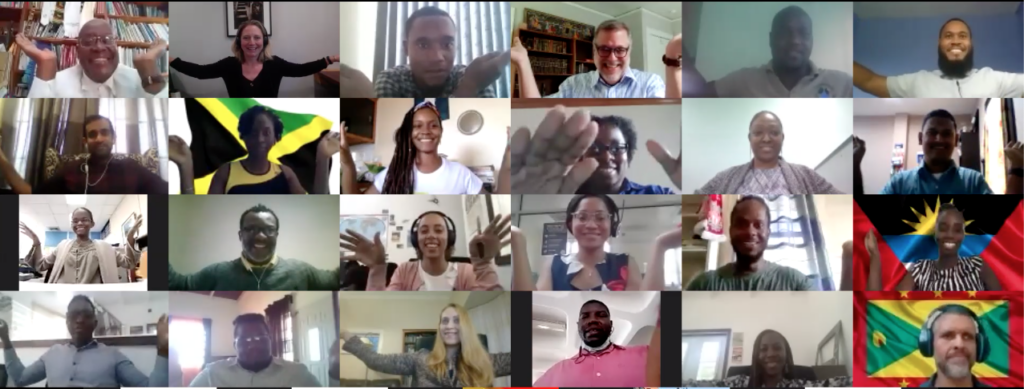 Participants from the Caribbean Cooperative MRV Hub Summer Academy, 2020.
Participants from the Caribbean Cooperative MRV Hub Summer Academy, 2020.
Not only do our alumni help us enhance our courses and programs, but by training with GHGMI, learners are committing themselves to address climate change in a meaningful way, and they support our organizational mission. We continue to pride and support our members and alumni throughout their GHG management career and/or education, but above all, we are also immensely grateful to the community we have humbly cultivated since 2007. To our 2020 Alumni, thank you for your staunch dedication to combating climate change, and for your efforts to motivate climate action around the world. The GHGMI community of technical experts continues to expand each year, and we look forward to your continued collaboration with GHGMI to address the existential threat of climate change.
[1] The Institute has three main certification awards: a Certificate of Proficiency is awarded when a trainee passes a course’s Proficiency Exam, a Diploma certificate is awarded when a learner completes a full Diploma program (6-7 courses), and a Certificate of Training is often awarded to participants at the conclusion of a collaborative program (such as the UNFCCC IPCC Guidelines Training Programme). [2] We have also updated our scholarship program to ask applicants about their racial identity. We do this so we can target outreach and support to marginalized communities to encourage diversity in the climate action professional realm. [3] We welcome feedback at any time. Send us an email at registrar@ghginstitute.org. The annual Alumni Survey for 2020 was distributed to 1,273 individuals (8% response rate) that participated in our online education program or other virtually delivered capacity development programming that was hosted on GHGMI’s e-learning platform. [4] Beginning in 2018, the GHGMI Alumni Registry has been compiled annually and contains alumni who have earned a Certificate of Proficiency or a Diploma within the reporting year from our online education program. Implementing and donor entities may use the alumni registry to find GHG management expertise within countries. Alumni who appear in these registries have provided their consent to be included. You can request to be included or excluded by emailing registrar@ghginstitute.org.

Comments